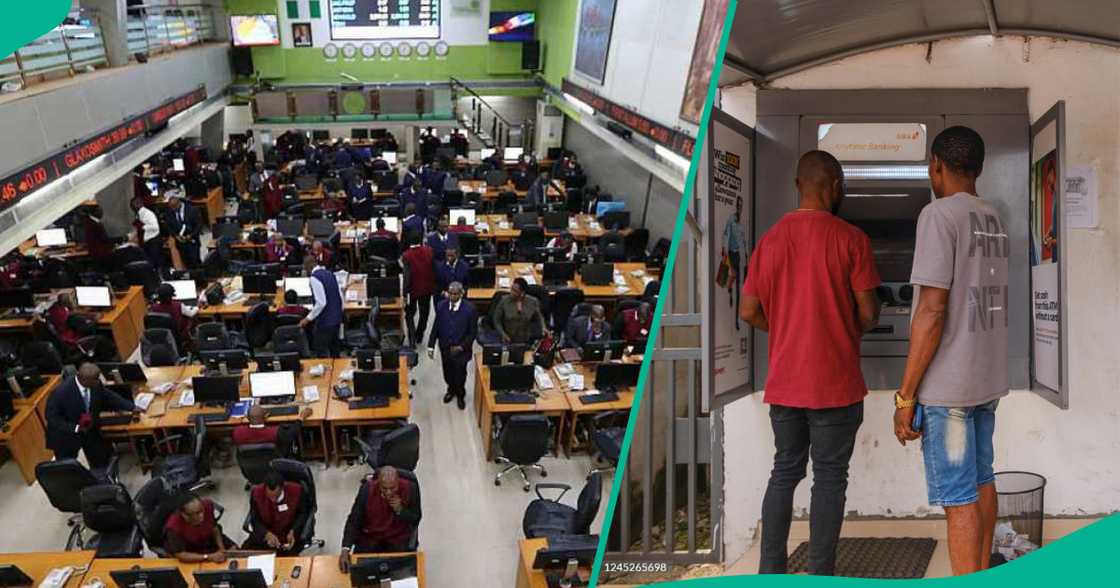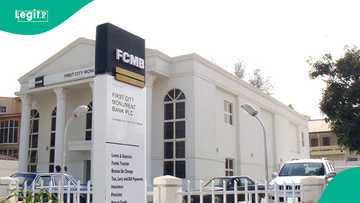N900bn Boost: Nigeria’s Banking Sector Set for Fresh Capital Inflow as Recapitalisation Heats Up
- A Nigerian ratings agency, Augusto & Co., has projected a massive capital inflow into the Nigerian banking industry
- The company disclosed in its 2025 Nigerian Banking Industry Report that more capital will flow into the sector
- The report came as more banks are scrambling to meet the recapitalisation deadline set by the Central Bank of Nigeria
Legit.ng’s Pascal Oparada has reported on tech, energy, stocks, investment and the economy for over a decade.
The Nigerian banking sector is set to receive an additional N900 billion in capital injection, as many banks expedite action to meet the recapitalisation target of the Central Bank of Nigeria (CBN).
This is despite the expiration of the regulatory forbearance, which is expected to moderate overall performance, a new report by Augusto & Co. said.

Source: Twitter
The Nigerian banking sector remains strong
The ratings agency recently published its comprehensive 2025 Nigerian Banking Industry Report.
The report provides an in-depth review of the banking sector, which covers its structure, competitive regulatory guidelines, financial health, emerging trends, and near-term outlook.
Despite global and domestic headwinds, Nigeria’s banking industry has shown remarkable resilience, maintaining an upward growth movement.
Banking assets set to skyrocket in 2025
According to recent data, total assets and contingencies are projected to hit N243.3 trillion, about $151.4 billion at the exchange rate of N1,600 per dollar.
The figure represents a 44.9% yearly increase from N186.6 trillion recorded at the end of last year.
Despite pressure from high-interest rates and a hawkish monetary policy stance, the banking industry remained strong and maintained liquidity, which rose to 59.4% in 2025 from 43.5% recorded in 2023.
Augusto said it expects this ratio to exceed 60% by the end of 2025, supported by favourable yields on treasury securities.
Banks employ an innovative funding approach
The report said banks are increasingly adopting innovative funding patterns to ease constraints.

Read also
Race against time: Meet Nigerian banking giants scrambling to meet CBN recapitalisation target
In the first seven months of this year, about N750 billion worth of commercial papers were issued by the banks.
The trend is expected to continue, especially as yields slow in the latter part of 2025, the report said.
A key driver of the recent recapitalisation efforts was the introduction of a minimum paid-up capital directive by the CBN in March 2024.
Nine banks scale CBN’s hurdle
The banks have until March 31, 2026, to meet the new recapitalisation thresholds, with about nine banks already crossing the hurdle.
According to a BusinessDay report, in 2024, about 16 banks collectively raised about N1.7 trillion, while N800 billion was raised in the first seven months of this year.
About nine banks have met the CBN capital requirement, although the apex bank and the Securities and Exchange Commission (SEC) are still verifying some of the raised funds.
Looking ahead: More capital is coming
The August & Co report said some domestic investors provided most of the raised capital in the last 19 months, showing strong local confidence in the Nigerian banking industry.
Augusto expects an additional 900 billion capital by the end of this year, as several banks comply with CBN’s directive.

Source: Getty Images
The influx will rejuvenate the industry and serve as a critical buffer against business risks and support near-term growth plans in the sector.
Nigerian banking giants scrambling to meet CBN target
Legit.ng earlier reported that the CBN directive for a banking sector recapitalisation, set with a deadline of March 31, 2026, has created a clear divide in the industry.
While a select group of banks has already scaled the hurdle, a significant number of Tier-1 institutions are still scrambling to raise the required N500 billion minimum capital base.
This news analysis examines the current landscape, detailing the banks that have yet to meet the requirement and linking their challenges to the success stories of their counterparts.
Source: Legit.ng




